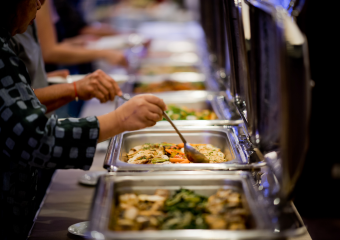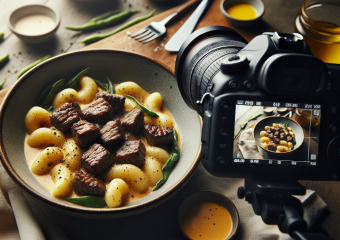Following A Vegan Diet Expert Explains What You May Be Lacking And How To Choose The Right Option – Onlymyhealth
The popularity of a vegan diet is on the rise, which is a plant-based diet that excludes all animal products including meat, dairy, eggs, and honey. This diet is widely known for its ethical and environmental benefits. However, it’s important to keep in mind that although these diets can be very healthy, they also have the potential to create nutritional deficiencies. To maintain a balanced vegan diet, it’s essential to have awareness and strategic planning. We spoke to our expert, Dr Archana Batra, Dietician and Certified Diabetes Educator, who listed common nutrients that you may be lacking on a vegan diet and how to choose the right options to fill those gaps.
Nutritional Needs On A Vegan Diet And Choosing The Right Option

Vitamin B12
“Vitamin B12 is paramount for nerve function, brain health, and DNA production and red blood cells. Unfortunately, it’s primarily found in animal products. A deficiency can lead to anaemia and neurological issues”, said Dr Batra.

According to Cureus, due to the lack of vitamin B12-rich foods including meat, poultry, and eggs, low vitamin B12 consumption is a serious issue in vegan diets. Hematologic and neurological issues have been connected to low vitamin B12.
The Right Option: Fortified foods and supplements are reliable sources for vegans. Hence, look for fortified plant milk, breakfast cereals, and nutritional yeast. Considering a B12 supplement is also wise, particularly for those who may not get enough from fortified foods alone.

Omega-3 Fatty Acids
Omega-3s are essential fats that play a crucial role in heart, brain, and eye health. While fish is a well-known source, vegans can focus on plant-based types like Alpha-Linolenic Acid (ALA).
The Right Option: Flaxseeds, chia seeds, hemp seeds, and walnuts are excellent sources of ALA. For those concerned about converting ALA to the more active forms of omega-3 (EPA and DHA), algae-based supplements are an effective vegan option.
Also Read: Food For Diabetics: Benefits Of Vegan Food And Best Options To Try


Iron
Dr Batra said, “Iron is vital for creating Red Blood Cells (RBCs) and transporting oxygen around the body. Plant-based iron (non-heme iron) is less easily absorbed than the heme iron found in animal products.”

The Right Option: You should incorporate iron-rich foods like lentils, chickpeas, beans, tofu, and fortified cereals into your diet. To enhance iron absorption, consume vitamin C-rich foods (citrus fruits, strawberries, bell peppers, and broccoli) in the same meal.
Calcium
Calcium is essential for bone health, and a common misconception is that it can only be obtained from dairy products.
The Right Option: Many plant-based foods are rich in calcium, including fortified plant milk and juices, tofu made with calcium sulphate, and dark leafy greens like kale and collard greens. Almonds and figs also offer modest amounts.
Vitamin D
The absorption of calcium and bone health are both dependent upon vitamin D. The ‘sunshine vitamin’ can be challenging to obtain from diet alone, vegan or not.
The Right Option: “Fortified foods are again a saviour for vegans, including certain plant milk, orange juice, and cereals. Spending time in sunlight helps your body produce vitamin D, but depending on your location and lifestyle, a vitamin D supplement (vegan D3 from lichen) might be necessary”, added Dr Batra.
Also Read: Vegan Or Omnivorous Diet: Study Finds Which Is Better For Heart Health
[embedded content]
Zinc
Zinc is crucial for immune function, DNA synthesis, and wound healing. Plant sources of zinc are less easily absorbed than animal sources.
The Right Option: To boost zinc intake, turn to whole grains, tofu, legumes, nuts, and seeds. Soaking nuts, seeds, and legumes can enhance zinc absorption.
Protein
While a varied vegan diet can provide enough protein, it requires careful planning to ensure the intake of all essential amino acids.
The Right Option: A diverse intake of plant-based proteins, including lentils, beans, chickpeas, tofu, seitan, and quinoa, will help cover all essential amino acids. Incorporating a variety of these sources throughout the day is key.
Bottomline
Dr Batra concluded, “While a vegan diet has its benefits, it’s important to be mindful of potential nutritional gaps. With the right planning and knowledge, you can enjoy a balanced, healthful vegan diet that supports your lifestyle and ethical choices. Always consider consulting with a healthcare provider or dietitian to tailor dietary choices to your individual health needs.”
[Disclaimer: This article contains information provided by an expert and is for informational purposes only. Hence, we advise you to consult your expert before making any dietary changes, especially if you are dealing with any health issues.]





